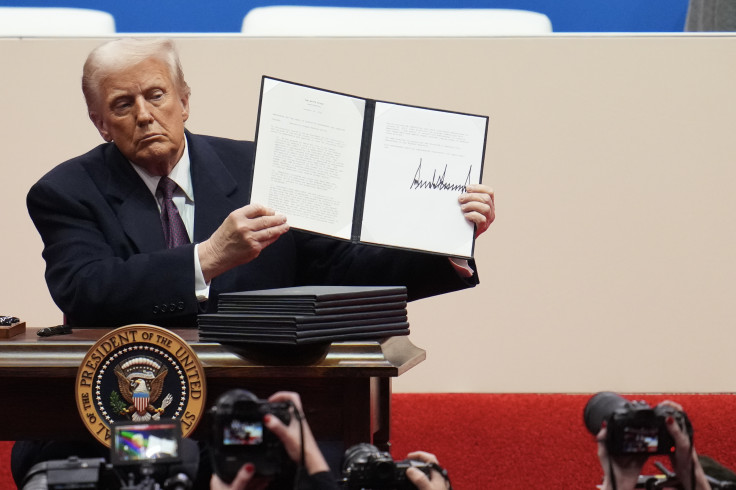
As President Donald Trump repeatedly promised during his 2024 campaign, he used his first day in office to launch his immigration crackdown, signing executive orders that would declare a national emergency in the U.S.-Mexico border, suspend the U.S. Refugee Admission Program, and end birthright citizenship.
Despite broad legal consensus that ending birthright citizenship in the U.S. is unconstitutional, Trump's order directs federal agencies to refuse to recognize children born on U.S. soil if at least one parent isn't an American citizen or green card holder.
The order is set to come into effect starting 30 days from now. However, experts told the Latin Times that this may never happen. Only two hours after its signing, the order received its first lawsuit, with many more expected to be filed during the coming days.
The lawsuit, filed in New Hampshire, was signed by 26 attorneys who argue the order violates the Constitution's 14th Amendment. Among the organizations joining the suit as plaintiffs, is the League of United Latin American Citizens, per Politico.
"Neither the Constitution nor any federal statute confers any authority on the President to redefine American citizenship," the suit says. "By attempting to limit the right to birthright citizenship, the Order exceeds the President's authority and runs afoul of the Constitution and federal statute."
According to Natalia Polukhtin, Vice Chair of the Ethics Committee for the American Immigration Lawyers Association, the Trump administration faces a steep road ahead.
"The 14th Amendment's citizenship clause provides that all children born in the U.S. are citizens, with very limited exceptions," she told the Latin Times, adding that the Supreme Court may revisit the issue, but even doing so, it does not have the authority to 'rewrite' the Constitution.
"The task of the Court would be to determine whether the interpretation of the statute was erroneous and, if necessary, provide a different interpretation," Polukhtin noted. "There is no precedent in the country's history allowing the executive branch to unilaterally change a fundamental legal principle bypassing the legislative and judiciary branches."
Immigration attorney Rosanna Berardi chimed in, suggesting the legal debate centers on five key words: "subject to the jurisdiction thereof."
"While some legal scholars argue this phrase leaves room for interpretation, courts have historically interpreted it to grant birthright citizenship to children of non-citizens born on U.S. soil," Berardi told the Latin Times, adding that the path to changing constitutional rights requires more than an executive order.
The Constitution provides only two mechanisms for amendment: congressional approval followed by state ratification or a constitutional convention called by states, the attorney explained. According to Berardi, the order will likely "be suspended pending judicial review."
© 2025 Latin Times. All rights reserved. Do not reproduce without permission.





